 Adela Azin Nazari
Adela Azin Nazari
Fatima Ahmadi is one of the members of the Afghanistan Women’s Movement for Justice. She grew up in Kabul, studied, married and became a mother. She says that all her childhood, teenage and youth memories are in Kabul and Paris will never be Kabul for her.
After the fall of the country and women’s street protests, living conditions in Afghanistan became difficult for her and she had to leave the country. She currently lives in Paris, the capital of France.
Start of protests
After August 15, Fatima Ahmadi stayed at home like most women. She says that she knew silence and acceptance of the situation means giving up and empowering the Taliban group. She says: “I wanted to do something to defend myself and other women’s rights.” She decides to look for like-minded people who stand up for her and other women’s lost rights.
On October 10, 2021, Ms. Ahmadi participated for the first time in the protest program that was held in Karte Chahar, Kabul. After this program, she thought that she had found her path. She says, “I said to myself, as a human being and a woman, we must continue for our own future and the next generation. They should know that we are against what others decide for us. We want social and political participation in our country, and I could not remain silent in the face of the violation of our most basic human rights.”
After that, on October 26, Ms. Ahmadi and other women protesters held a protest march in front of the United Nations office in Wazir Akbar Khan. In that protest, the Taliban attacked the journalists and dispersed them from the area.
More than ten Taliban Ranger vehicles surrounded the protesters and blocked their way. “The Taliban threatened us to turn off our mobile phones and waited until one of their commanders, who had a long beard and wore a black loincloth, came and one of his men read the names of each protester from the list in his hand and He said that the place of good women is at home and the place of bad women is on the street.
The Taliban ordered them to return to their homes with anger and threats and not to try to hold demonstrations against the regime again, otherwise they will be punished.
In that protest, except for a limited number of male journalists who came to prepare a report, no other man stood beside them with his presence on the street. She says: It was incomprehensible to me that the men of my country watched the closing of their sisters’ and children’s schools and universities and did nothing. How could they look into the eyes of a child who was left out of school and remain silent? The women who were struggling with the feeling of danger within a few steps on the roads needed the support of the same brothers and fathers who preferred silence over litigation and instead of helping us stand up, they condemned us and became accomplices of our enemies. As a woman who has felt this pain with all my being, I complain about the men of my country until they understand this and do not stand up against it.
Of course, Fatima Ahmadi does not deny the support of a number of men who supported women and says: “But there were limited men who wrote articles or supported us through their art, media and cyberspace”
The protest movement of protesting women started working spontaneously in a unified group under the title (Women’s Political Participation Network). All the members spontaneously came to the street and shouted for justice with the slogan of education, work and freedom, but later there was a difference between the protesting women and many other groups started to operate under different titles.
They chanted the same slogan in different groups and had common goals. Ms. Fatima Ahmadi has worked with other members of her group in the Afghanistan Women’s movement for justice with a common goal for the women of Afghanistan.
Ms. Ahmadi says that the Afghanistan women’s movement for Justic with Sabera Akbari and Hoda Khomoush has been a strong and determined movement. She adds that our work started with street protests at the beginning of this movement, and with the imposition of countless restrictions by the Taliban and increasing threats, we continued our protests in closed and secret places in Kabul.
After the Taliban banned protesting in the streets, the members of this movement painted murals on the walls of Kabul and had a prominent presence in the media and social pages. They have not remained silent in Pakistan and Iran, and have execute their plans against the thoughts and orders of the Taliban.
Fatima Ahmadi says that “I worked with the Afghanistan Women’s Movement for justice for nearly three years, but I am not a member of any movement at the moment. But until the girls and women of Afghanistan do not get their human, political and social rights, my struggle will continue and I will stay by their side.
Currently, a large number of protesting women, who until a year or two ago were members of active protest groups and shouted for justice for their fellow citizens in the streets of Kabul, are in exile.
Despite being aware of the difficulties of life in Kabul, Mrs. Ahmadi says: “As a woman and a mother, I must say that life in exile and displacement is very painful. In my country, with the restrictions imposed by the hated ruling group, as a woman you cannot leave the house, work, take a taxi and go to the park alone without a close male member of the family escorts you. You do not have the right to choose the color and type of your clothes and it is someone else who should decide for you what to wear, how to wear it and where to go.
It is very difficult to live in exile in a country like Pakistan, where you have to be with a close male member of your family even to rent a place, otherwise you will not be given a house.
It is painful to explain to different people why you are living alone so as not to be judged. The questioning and meaningful looks of these people hurt our psyche every moment. However, the burden of problems and sadness that my contemporaries in Afghanistan bear cannot be compared to the suffering of migration. You have to work, shout for justice and fight against the tyranny of the ruler.


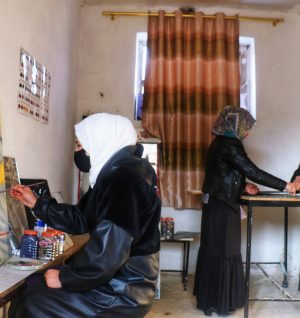
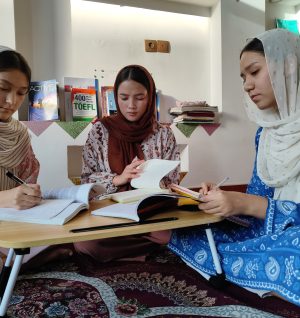
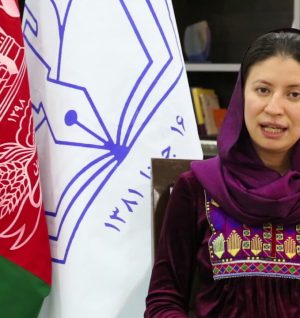

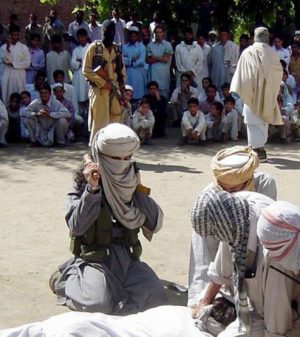
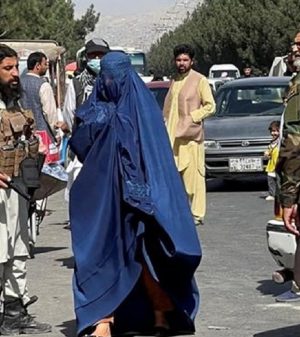
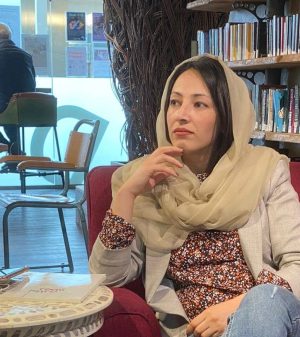
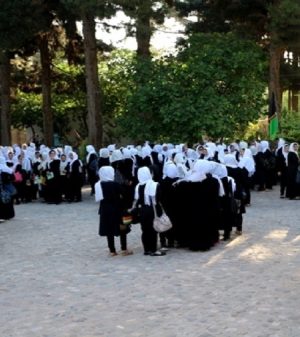
Add Comment